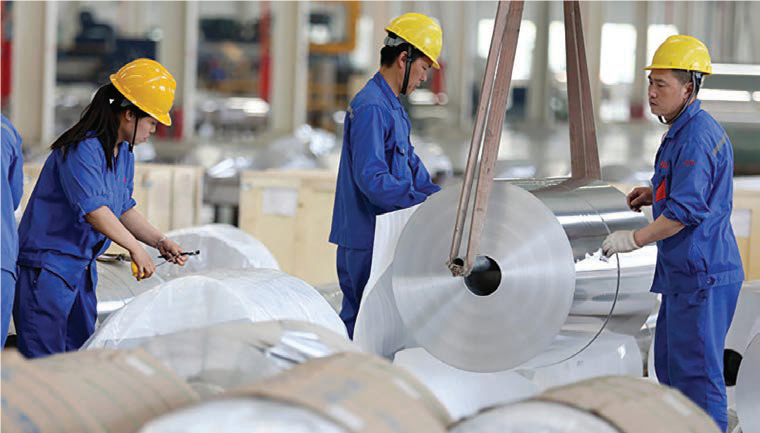President Trump’s imposition of higher tariffs on steel and aluminum imports is getting some local blowback.
Derek B. Miller, president and chief executive officer of World Trade Center Utah, and Lane Beattie, president and CEO of the Salt Lake Chamber, warned against the idea when it was broached.
{mprestriction ids="1,3"}“The news of President Trump’s steel and aluminum tariff is troubling for Utah manufacturing companies as they will see higher costs for their raw goods,” Miller said. “If countries like China are engaged in unfair trade, the resolution should be targeted and focused. By imposing broad tariffs across the board, we strain our relationship with trade allies and jeopardize the competitiveness of local companies.”
“The ramifications of President Trump’s proposed plan to impose far-reaching tariffs on steel and aluminum imports could be disastrous for many Utah businesses and could have a rippling effect on our state’s economy,” Beattie said.
Trump said last week he would impose tariffs on steel and aluminum imports — 25 percent on steel and 10 percent on aluminum.
“Steel and Aluminum industries (and many others) have been decimated by decades of unfair trade and bad policy with countries from around the world,” Trump said in a March 1 Twitter post. “We must not let our country, companies and workers be taken advantage of any longer. We want free, fair and SMART TRADE!”
“Our manufacturing sector is currently one of the strongest in the country, with a total output of more than $17 billion in 2015 — representing nearly 12 percent of our state’s total economic output,” Beattie said. “Beyond that, nearly 20 percent of all Utah jobs stem from exporting these manufactured goods. Some of these jobs could be put at risk by broad tariffs.
“More-expensive steel and aluminum means higher costs for Utah businesses and ultimately higher costs for consumers. It is our hope that President Trump takes a step back from his calls for heavy-handed tariffs and restrictions on steel and aluminum imports and thinks about the impacts such actions could have on this country’s overall competitiveness.”
Trump’s proposal had drawn criticism even within the Republican party. Opponents cautioned that such tariffs could prompt a trade war with other nations and ultimately hurt U.S. consumers.
House Speaker Paul Ryan said last week through a spokeswoman that the tariffs would “jeopardize” the economic gains from the recent Republican tax cuts, according to The New York Times: “We are extremely worried about the consequences of a trade war and are urging the White House to not advance with this plan.”
Canada and Mexico would be exempt from the new tariffs if the U.S. can “make a deal” on the North American Free Trade Agreement (NAFTA), Trump said.
“We have large trade deficits with Mexico and Canada,” Trump tweeted earlier in the week. “NAFTA, which is under renegotiation right now, has been a bad deal for U.S.A. Massive relocation of companies & jobs. Tariffs on Steel and Aluminum will only come off if new & fair NAFTA agreement is signed.”
Both the World Trade Center Utah and the Salt Lake Chamber have supported the idea of updating and tweaking NAFTA rather than repealing it entirely.
{/mprestriction}








